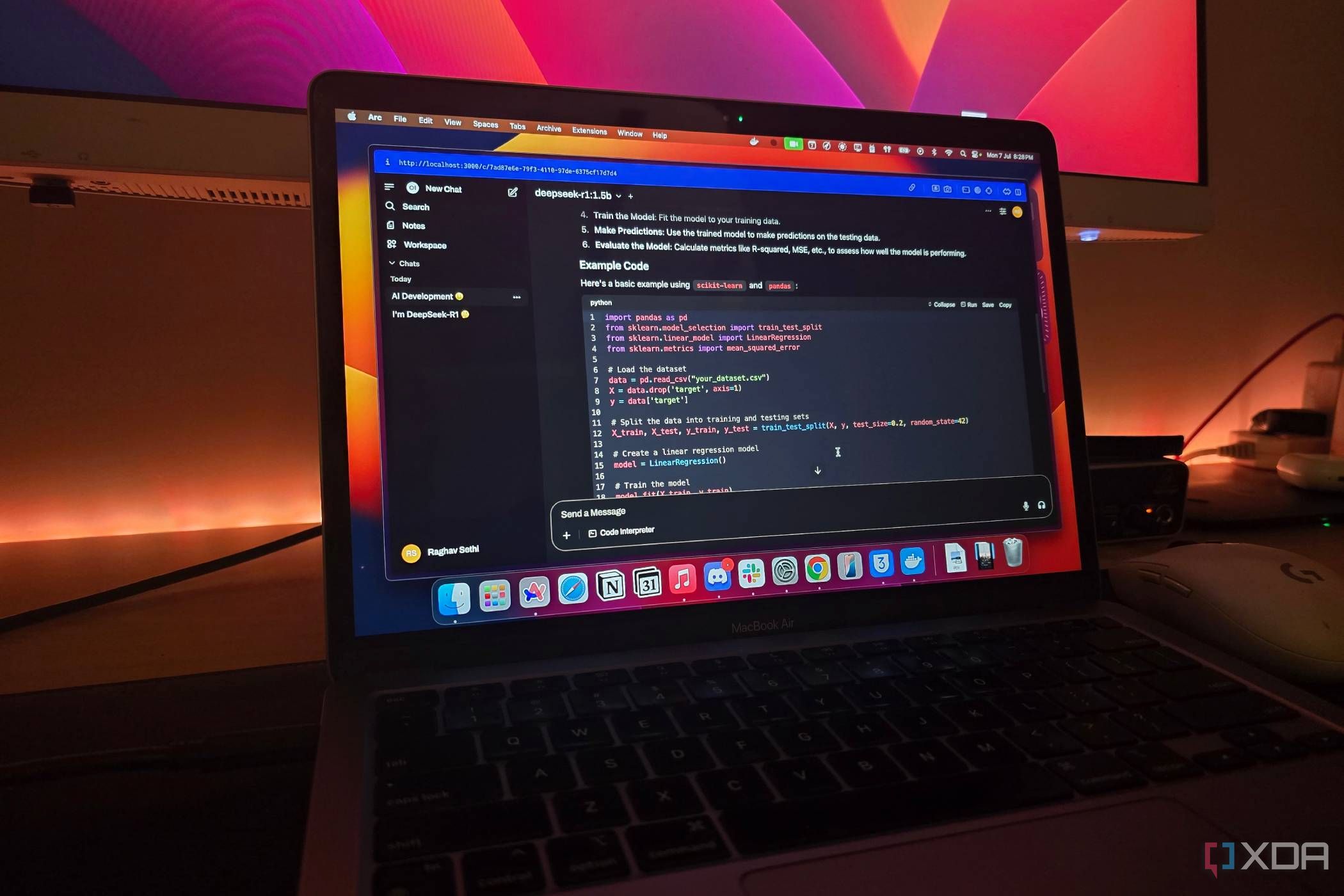UPDATE: Local language models (LLMs) are now more accessible than ever with the release of LM Studio, a powerful tool that is revolutionizing how users enhance their digital workflows. Just announced, this innovative software allows users to leverage LLMs directly on their PCs, making advanced functionalities available without extensive technical knowledge.
Why This Matters NOW: As remote work and digital tasks surge, the ability to utilize LLMs locally can drastically improve efficiency, streamline processes, and enhance productivity. From generating alt text to automating home tasks, LM Studio is set to transform daily operations for individuals and businesses alike.
Here are six immediate ways to harness LM Studio’s potential:
1. Effortless Alt Text Generation: With the integration of LM Studio and Gemma 3 27B, users can now generate alt text for images in seconds. This is crucial for web accessibility, allowing screen readers to describe images accurately. Implementing this feature ensures your online content is compliant with accessibility standards, enhancing user experience for those with disabilities.
2. Enhanced Note-Taking with Obsidian: Users can elevate their note-taking experience with the “LLM Workspace” plugin in Obsidian. This integration allows for seamless interaction with LLMs, enabling users to index and query notes directly within the platform. This update is essential for anyone looking to organize their digital documentation effectively.
3. A Local Coding Buddy: Developers can now replace Microsoft’s limited Copilot with LM Studio in Visual Studio Code, providing unlimited autocomplete suggestions without sending sensitive code to the cloud. This local solution not only ensures privacy but enhances coding efficiency, making it a game changer for software engineers.
4. Document Summarization: LM Studio offers an intuitive way to summarize documents. Users can drag-and-drop files like PDFs and DocX into the platform, allowing for quick information retrieval and contextually relevant answers. This feature is invaluable for professionals needing to digest large volumes of text rapidly.
5. Offline Study Assistant: For students and researchers, LM Studio replicates the functionality of Google’s NotebookLM offline. Users can create structured outputs like flashcards and quizzes from textbooks, ensuring effective study sessions without reliance on internet access. This capability is particularly beneficial for those in areas with limited connectivity.
6. Home Automation with LLMs: The integration of LM Studio’s OpenAI-compatible API allows users to automate tasks at home seamlessly. By connecting with services like Home Assistant, users can generate email summaries and even analyze video feeds from security cameras, all while keeping data local and secure.
Key Takeaway: As local LLMs become more integrated into everyday tasks, LM Studio stands out as a critical tool for efficiency and privacy. Users can enhance their digital workflows, ensure data protection, and boost productivity—all from the comfort of their own PCs.
What’s Next? Expect rapid adoption of LM Studio as more users discover its capabilities. As digital tasks continue to evolve, the demand for local solutions will grow, making it essential for professionals across various fields to adapt.
Stay tuned for more updates on how LM Studio is influencing the tech landscape and improving user experiences everywhere.





































































